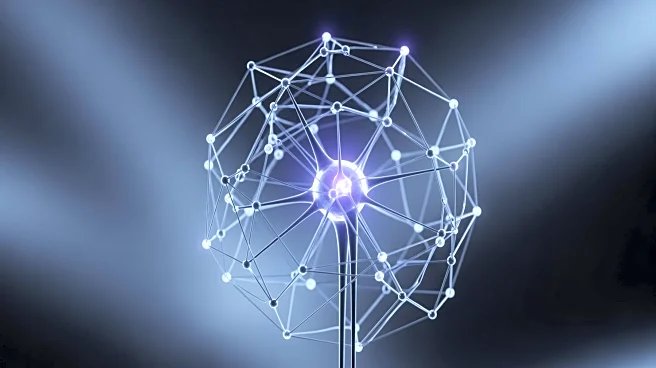What's Happening?
A study conducted at Ruijin Hospital, Shanghai, has identified physiological and neuropsychological biomarkers in the prefrontal-bed nucleus of the stria terminalis (BNST) that predict therapeutic outcomes
in depression. The research involved 26 patients with major depressive disorder (MDD) who underwent deep brain stimulation (DBS). The study found that specific connectivity profiles in the brain could optimize DBS outcomes, highlighting the importance of symptom-specific connectivity in treating depression. The findings suggest that targeted DBS could improve treatment efficacy for patients with MDD.
Why It's Important?
This research is crucial as it provides insights into how brain connectivity can influence the effectiveness of depression treatments. By identifying biomarkers that predict therapeutic outcomes, clinicians can tailor DBS treatments to individual patients, potentially improving recovery rates and reducing treatment resistance. The study emphasizes the need for personalized approaches in mental health treatment, which could lead to more effective interventions for depression. Understanding the brain's connectivity patterns could also inform future research and development of new therapies for mood disorders.









